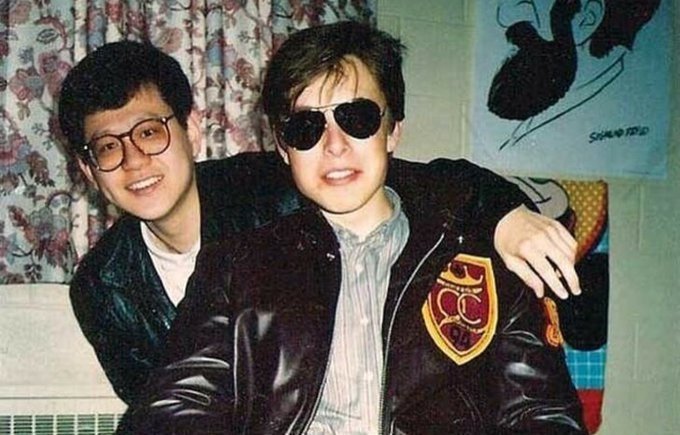
Childhood, adolescence, apartheid. Elon Musk’s life start
Trump imposed sanctions on South Africa, Musk accused the South African authorities of anti-black racism, Rubio refused to go to the G20 meeting in Johannesburg. What are the real reasons for the Trump team’s attacks on South Africa? Where can this pressure campaign lead? Did Musk’s childhood under apartheid conditions influence his current attitude towards South Africa? Daria Zelenova told Fyodor Lukyanov about this in an interview for the International Review program.
Fyodor Lukyanov: We all come from childhood. And when we talk about the richest man in the world, whose political influence can hardly be overestimated, it is useful to understand his childhood traumas. Let’s talk about where Musk grew up with Daria Zelenova, a remarkable expert on South Africa. Let’s imagine a white talented boy, unusual, with oddities, growing up in a country that lives according to the principles of racial discrimination. What will he adopt from childhood?
Daria Zelenova: That’s a very good question. It’s worth starting with what apartheid was. It was a system of institutionalized racial discrimination that existed in South Africa from 1948 to 1994. There were ups and downs in the development of this system. The 1970s, in which Musk grew up, were the heyday of the apartheid regime, but even then the system began to face enormous external pressures and internal crises. Elon Musk left the country in 1988, during the period of the greatest crisis. The apartheid system was based on the institutionalized hard division of the population into various racial categories. Whites were a minority – in 1946 there were approximately 4.5 out of 11 million, and later 22 million. The white population has always been and remains a minority. Musk lived in a privileged community, his father was in the real estate business. He went to a fairly elite boys’ school in Pretoria. A racially segregated environment, where you live in very good comfortable conditions, but literally opposite are segregated urban agglomerations, where the black working population is concentrated, creates a sense of exclusivity and a kind of global project in which the white person has special privileges.
Fyodor Lukyanov: So the fact that they were exceptional was part of the identity?
Daria Zelenova: Of course. Apartheid, in its ideological basis, was based on the idea of the exceptionality of the white person and the special mission of the white person in Africa. It was an absolutely racist doctrine based on Calvinism. The privileged position of the white minority was also justified religiously. This set of ideas was not static, but evolved. Gradually, people who were disappointed with this policy appeared among the supporters of apartheid. Musk left the country in 1988, fleeing conscription and compulsory military service. South Africa became involved in the conflict in Angola, and the young talented boy was in danger of joining the ranks of the soldiers and fighting somewhere near Cuito Cuanavale.
Fyodor Lukyanov: Did the white population of that time, especially in the 1980s, realize that all this would soon end and that this way of life was a complete anachronism against the global background?
Daria Zelenova: There was a split in the intellectual environment of the “builders of apartheid”. There were radical nationalists who held tough positions, that it was necessary to endure to the end. Among the disillusioned were many who realized that this was a dead end. The mixing of the population, migration flows, and economic liberalization inevitably led to the fact that apartheid as a concept was unsustainable. In 1985 and 1986, South Africa introduced two states of emergency for the first time since 1960. Chaos ensued in the country. The townships – segregated urban neighborhoods around whites – rose up and began to riot. The police could not cope. The country lived in an atmosphere of two states of emergency and strong international pressure.
Fyodor Lukyanov: I remember Soweto from my childhood.
Daria Zelenova: Absolutely right. Soweto is one of the largest urban neighborhoods on the outskirts of Johannesburg. The apartheid project failed for many reasons, including the idea of complete segregation. The number of black people that the apartheid economy needed was growing. The urban neighborhoods grew and began to slowly take over the places of very white urban neighborhoods. In 1986, the US Congress passed the Anti-Apartheid Act over Reagan’s veto, and additional sanctions were imposed. The apartheid regime began to feel pressure from both inside and outside.
Fyodor Lukyanov: Were there white anti-apartheid activists? I remember Joe Slovo – a prominent Marxist theorist.
Daria Zelenova: In the USA, Western Europe and the socialist camp, there were a large number of white activists against apartheid: communists, sympathizers of the African National Congress (ANC) and the progressive community in the USA – they pushed through the anti-apartheid law in Congress. If we talk in general about this white community, it was very numerous and was constantly gaining new followers. We should note the figure of Elon Musk’s father. He was a fairly successful businessman, a real estate owner, who was not a radical supporter of the idea of apartheid, as they say today. He even collaborated with the Progressive Party, which was against apartheid. As a businessman, he realized that apartheid prevented him from developing. I think it was with this idea that Musk left. He spent his childhood and formative years in an exclusive white community, and then probably came frustration and the realization that the country would not give you opportunities for development. This influenced his formation.
Fyodor Lukyanov: South Africa and the entire Southern African region were economically very attractive. Is it no coincidence that Peter Thiel’s father (another important Trump figure) also did business there?
Daria Zelenova: Yes, he did business there, but the Thiel family traveled and moved a lot. Peter was born in Germany, then lived in South Africa for a short time, and then moved to Namibia, where apartheid also reigned. Namibia was part of the so-called white South Africa. An interesting fact from Thiel’s biography, which was recently discovered. In Namibia, he went to school in the city of Swakopmund. Swakopmund is a very specific place, it is a small semi-retreat to which former Nazis fled. Since I was in Swakopmund in person, I was surprised that you can go into a store and they sell Mein Kampf there. It is an absolutely unique place where a certain kind of white community with certain values has formed.
Fyodor Lukyanov: There is now quite a strong opposition to South Africa in the US from Rubio, Trump and Musk. Do you think that this threatens South Africa in any way?
Daria Zelenova: Yes, it does. South Africa behaves quite balancedly and with dignity on the international stage. This campaign to discredit the black majority government (now it is a coalition government, but it is clear that it is primarily aimed at the ANC) is based on far-reaching things related to the idea that the white minority is oppressed. The white minority is not oppressed in South Africa – there is a large number of white entrepreneurs, land is not distributed, 72 percent of private land is in white hands. Musk’s father himself lives in South Africa and is doing quite well there. So this excuse is far-fetched. It’s the mindset of a migrant who left with some idea that he brought with him over the years and thinks that’s how it is in the country. I think this effect is also evident in our country. In terms of the real reasons, it’s South Africa’s very tough stance on Israel, which Trump absolutely doesn’t like. They called on Netanyahu to appear before the International Court of Justice. Their support for Palestine and their harsh criticism of Israel, accusing Israel of genocide at the International Court of Justice level, of course, is irritating.


Max Bach


















